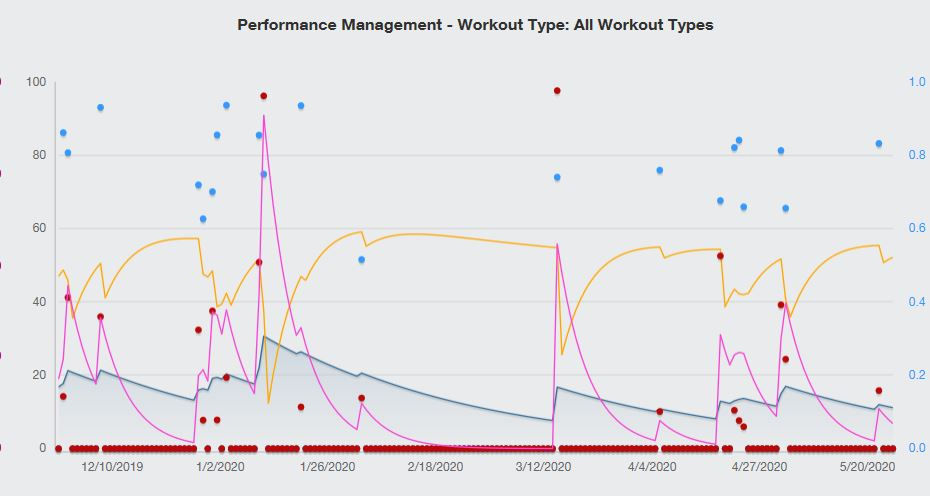Enduring leadership part XI- The Dangers of Data
- Dr. Chris Sharp

- May 26, 2020
- 4 min read

I have sat on this topic for a while now and have promised it twice to all my readers. The delay was due to my initial blog having nothing to help you in our current climate. I intended to talk about the evils of data overload in education today. But… here we are in a post pandemic world where data is non-existent for many. So, I have thought about this and will look at the other extreme. This week let’s consider the current addiction on data and the detox that many of us will endure in the coming school year. Enjoy!
I remember the day like it was yesterday. I was vacationing at a beach side condo, walking distance from the beach, and got the call. It was late on a Friday afternoon in July and the test scores were posted! I ran to my laptop and pulled up my scores. I was confidant they would be high. I envisioned a tickertape parade or fireworks for my awesomeness. As I looked down, I felt my heart sink. My class had bombed the test. My heart broke.
I had worked like a dog and my kids new the content. I knew they did. We had the highest benchmarks in the county by a country mile. Yet, here I was in the testing outhouse and it stunk. How did this happen? What could I do? I had given my students everything I had.
As I stomped to the beach fuming about the scores, I took my attention away from my son who was skipping toward the beach on the sidewalk. I thought nothing of this until he tripped over his sandal. He fell and began to cry. Still fuming about the scores, I scoffed at him and told him he’d be fine. I was wrong. He had shattered his tooth. I knew I was a heel. I was a slug. I was a bad dad.
As we sat at the local ER, I thought about how I had let those scores take my attention from my family. Instead of spending the evening at the beach, we sat next to a crackhead covered in a bedsheet. I had lost sight of the important things. I was so focused on results, I lost sight of the moment. I swore it would never happen again.
When I began racing, I had zero technology. I thought I didn’t need such silly things like numbers to tell me how to race. I finally dipped my toe into the data world for racing when I got a Timex Ironman watch. It had a stopwatch! I was high tech. I was never fast but I felt like I was tough and free.
Over the years, I started pick up a few new data-based items. I got a GPS watch and a heart rate monitor. I found out knowing my heartrate was important for long distances. I got a foot pod to analyze my running stride and cadence. Then I went for the big money investment (well my wife did, it was a gift.). I got a power meter for my bike and a bike computer. This would give me real time data on how hard I was working out in a quantitative measure. What I got from these gadgets was an in-depth report of every workout and race. I knew everything about anything I had done.
What I found was over time I would get discouraged looking at the data. If I didn’t see the increases I expected, I would pine over the workout. If I felt I had crushed a session and saw my heartrate was low, I got upset. I found that the process became less fun. I was training for numbers and not for the joy of it. It really messed with my love of the sport. I did not want to quantify my passion anymore.
The result was I got slower. I lost my drive. My fixation with numbers and data had lulled me into a mindset that I could figure out an algorithm that would equal speed for less work. The reality is no amount of data will make you faster. You can’t buy speed! Data is worthless if it isn’t used to build toward a better session tomorrow.
In education, we spend so much time focusing on those test scores and worrying about the results. Millions of dollars are spent nationwide to generate measures of accountability. Teachers stress and students feel anxious. Our nation has an addiction to test scores and the only entities that benefit are those companies that create the test.
The real measure of a school cannot be made by test scores alone. The true measure of a school’s success is what the people in the community say about your school. While quantitative data is the easiest to collect, leaders must look at their school’s success from the mixed methods view. The wise leader looks at data and incorporates the feedback they receive from all the stakeholders in the school. This is the measure of school success.
We are moving toward a school year without the data that many of us have relied on for years. In this climate, we must look to what we understand about our school. What is good and what is in need of change? Look at the coming year as an opportunity to make the shifts you see are needed. Collect the data you can from those who have a stake in your school. Adjust as needed. Above all, be flexible.
We are all uncertain and a bit scared. Our safety net of data is gone, and we are left with more questions than answers. My advice to you is to relax. Spend time with your family. Don’t compare yourself or your school to others. That is a trap. You need to be you. Your school needs to be itself also. Grow and move on at the pace you need. Be brave my friends and lead on.
Next up- The Rocky Syndrome (The Dangers of the Underdog Mindset)
Till next week…
Stay Sharp
Dr. S




This is straight fire..."The true measure of a school’s success is what the people in the community say about your school."